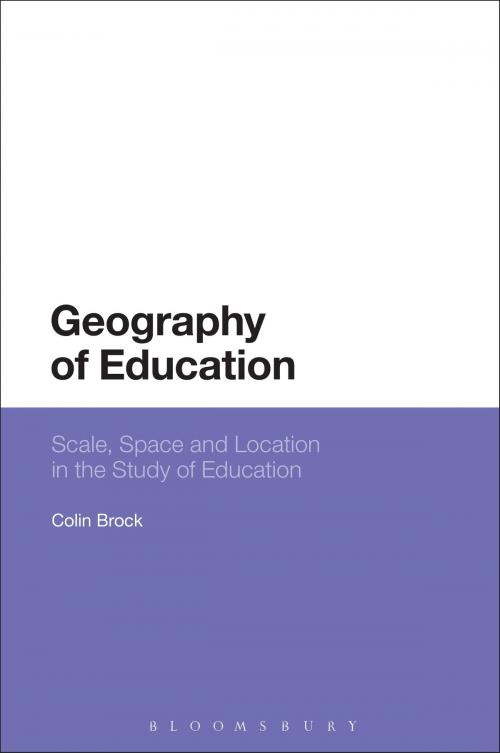Geography of Education
Scale, Space and Location in the Study of Education
Nonfiction, Social & Cultural Studies, Social Science, Human Geography, Reference & Language, Education & Teaching, Educational Theory, Educational Reform| Author: | Dr Colin Brock | ISBN: | 9781474223263 |
| Publisher: | Bloomsbury Publishing | Publication: | September 22, 2016 |
| Imprint: | Bloomsbury Academic | Language: | English |
| Author: | Dr Colin Brock |
| ISBN: | 9781474223263 |
| Publisher: | Bloomsbury Publishing |
| Publication: | September 22, 2016 |
| Imprint: | Bloomsbury Academic |
| Language: | English |
Geography of Education sets out the scope of this emergent, interdisciplinary field. It illustrates the essential affinity of geographical and educational studies, by emphasising the geographical factors influencing formal education systems and other forms of knowledge transfer. Colin Brock begins by arguing the theoretical synergy that exists between the nature of both geography and educational studies as disciplines. This is then exemplified by an analysis of the emergence of systems of schooling under the influence of religious, political and economic forces. The author also considers informal and non-formal modes of education, and argues that the huge diversity of such provision creates a rich resource for research into geographies of education. In the final chapters the author turns his attention to the role of cyberspace, which has its own geography, in learning, and considers education as a form of humanitarian response to issues of environmental sustainability. By bringing together a wide range of themes and topics relating to both education and geography, Colin Brock argues that the geographical approach should inform the evolution of all types of educational provision around the world.
Geography of Education sets out the scope of this emergent, interdisciplinary field. It illustrates the essential affinity of geographical and educational studies, by emphasising the geographical factors influencing formal education systems and other forms of knowledge transfer. Colin Brock begins by arguing the theoretical synergy that exists between the nature of both geography and educational studies as disciplines. This is then exemplified by an analysis of the emergence of systems of schooling under the influence of religious, political and economic forces. The author also considers informal and non-formal modes of education, and argues that the huge diversity of such provision creates a rich resource for research into geographies of education. In the final chapters the author turns his attention to the role of cyberspace, which has its own geography, in learning, and considers education as a form of humanitarian response to issues of environmental sustainability. By bringing together a wide range of themes and topics relating to both education and geography, Colin Brock argues that the geographical approach should inform the evolution of all types of educational provision around the world.















